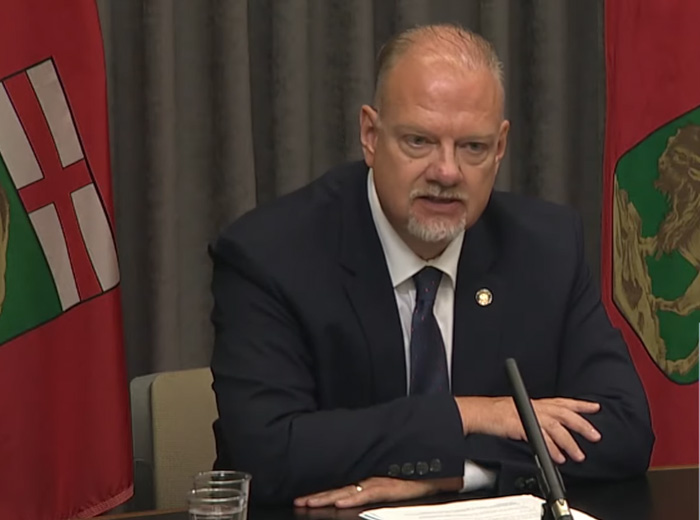Steinbach MLA and Education Minister Kelvin Goertzen announced that the Manitoba government has released a planning framework for the resumption of in-class learning, with teachers and staff returning to classrooms on Sept. 2 and students on Sept. 8.
“We are planning to have all students, from kindergarten to Grade 12, back in classrooms in September. While we can’t be sure what the COVID-19 pandemic will look like in the fall, detailed planning is needed to ensure schools can resume in-class learning and to prepare for different scenarios,” said Goertzen. “This framework will allow schools and school divisions to prepare plans that are flexible at the local level, yet consistent with those at other sites across the province.”
The framework provides guidance for school divisions to develop detailed reopening plans to be submitted to Manitoba Education for three public health scenarios including:
- in-class learning with near-normal conditions;
- in-class learning, taking additional public health measures into consideration; and
- remote learning from home, with limited use of school facilities.
The minister noted that while the plan is for all students to return to classroom learning in the fall, Manitoba Education will provide final confirmation by Aug. 1 based on public health directions.
Significant consultation with students, parents, teachers and education stakeholders occurred over the past month to gauge their comfort, with tens of thousands of Manitobans providing feedback.
Divisions will ensure all schools have plans that are accessible to parents and students. Funded independent schools will also be asked to submit plans and post them publicly.
“Public health officials expect the COVID-19 virus to be around for some time and that’s why schools need to develop plans for the fall,” said Dr. Brent Roussin, Manitoba’s chief provincial public health officer. “In addition to these plans, it will continue to be important for people to stay home if they are sick, ensure physical distancing, continue to practise good hand hygiene and cover coughs.”
The framework also outlines key considerations that should be addressed in the school and division plans including:
- ensuring schools can respond and adapt to changing public health orders and guidance;
- making sure any necessary physical distancing requirements can be met;
- considering the use of cohorts in classrooms, on buses and during activities to limit exposure to COVID-19;
- planning with a focus on in-class learning and establishing priorities;
- looking at ways to accommodate specialty programming and extracurricular activities;
- considering how school transportation can be safely offered;
- looking at blended learning options that can be implemented quickly;
- making arrangements for students, teachers and staff who may be at higher risk of COVID-19; and
- considering learning and assessment needs, as well as any educational gaps for students as a result of the pandemic.
“Students, parents, teachers, staff and administrators have had to make many adjustments in a very short period of time, and I thank everyone who has worked hard to find solutions to keep everyone safe during the pandemic,” said Goertzen. “By taking the time to develop thorough plans, we can continue to protect the health and well-being of our school communities while ensuring that students have the opportunity to learn and develop their skills.”
The report can be viewed at manitoba.ca and feedback can be provided at engagemb.ca.




